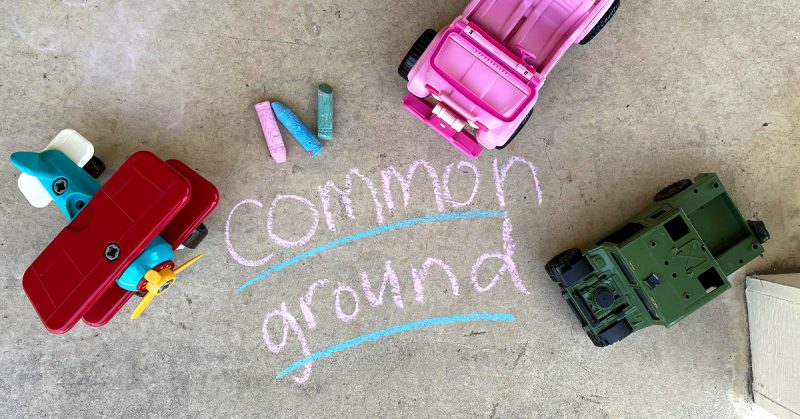The majority of the population in the United States struggles to connect with the military. For most Americans there is a deep, patriotic pride for the military, but it lacks a more in-depth understanding of the armed forces community. Since less than 10% of the population is actively serving or a veteran, it shouldn’t come as a surprise. There seems to be a pervasive thought that civilians could never “understand” what military life is like. This thought eliminates the chance of any connection before a conversation even starts.
I’d like to talk about a few ways civilian and military Americans can relate. We really have way more in common than we think. There are many similar experiences we share – parenting, going back to work after having kids, building friendships, navigating workplace relationship dynamics – the list can go on and on. Here are several more in-depth experiences we share:
- PCSing typically can be an instant common ground conversation for military spouses. Swapping PCS horror stories has become a favorite topic of conversation in neighborhoods and spouse groups all over the world. But civilians move, too. Moving stories are notorious in civilian life and military life. We’ve all dealt with the same headaches that come along with packing and unpacking and finding our way around in a new town.
- Job Separation. Military job requirements will at some point inevitably require some time away from family. So do a lot of civilian jobs. Getting used to staying at home when your spouse is away, added responsibilities, different schedules … these are all similar situations we share. However, the common ground can be hard to see through the haze of differences. The differences are intimidating but over thought. I believe they act as an invisible barrier in a lot of cases but aren’t necessary.
- The Acronyms. It’s like a new language. If you have ever heard two military members talking about work, half of it will sound like a foreign language. The acronyms are like a second alphabet. The funny thing is, if you ask what they mean a lot of service members can’t even tell you. There are plenty of spouses that just don’t worry about figuring it out. It’s not all that different from lingo spoken in the medical, engineering or education realms of society. While we may not speak the same language, we can at least agree that the acronyms are getting out of control!
- The Vast Opportunities. This year, I worked with a lot of elementary students. And we are currently living in a totally civilian town. During the “get to know each other stage,” I was so perplexed by the kids’ responses when I told them my husband was in the Army. Most of the responses were, “I will never be in the military because I don’t want to die,” or “I don’t want to be away from my family” or “I don’t want to go to war.” I’ve never felt the disconnect between the military and civilians so vividly. These were the phrases these kids were hearing at home about the military. I don’t blame the parents, even though I thought about it. The disconnect between service members and civilians has been going on for decades, and this is the byproduct. I believe talking about the vast range of jobs inside of the military is important. Only a small percentage of those in the military actually go into combat arms. There are plenty of other career options inside of the military.
- Why People Serve. At a previous unit, we hosted a remembrance event prior to the Memorial Day holiday weekend. Part of the day was for soldiers to share the reason they decided to serve. One after another, soldiers stood up and shared very intimate reasons for joining the military. Some joined for family, others to pay for school, others to find a way out of their circumstances. One soldier shared that his older brother had died before he got a chance to join the military and he joined as a way of honoring his brother and fulfilling his brother’s dream. There were many, many different reasons shared.
In conclusion, connections between the military and the civilian world run through both realities like water down a mountain. Highlighting the common ground helps us see each other through the seemingly complicated differences. When we stop only looking at the things we think divide us, we realize we have more in common than we ever thought.




